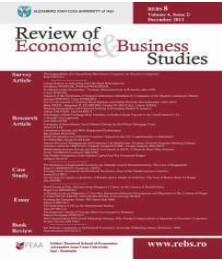THE EFFECT OF THE 2008 GLOBAL FINANCIAL CRISIS ON THE EFFICIENCY OF LARGE U.S. COMMERCIAL BANKS
THE EFFECT OF THE 2008 GLOBAL FINANCIAL CRISIS ON THE EFFICIENCY OF LARGE U.S. COMMERCIAL BANKS
Author(s): Seyed MEHDIAN, Rasoul Rezvanian, Ovidiu StoicaSubject(s): National Economy, Business Economy / Management, Economic history, Transformation Period (1990 - 2010), Financial Markets
Published by: Editura Universităţii »Alexandru Ioan Cuza« din Iaşi
Keywords: Banks; financial crisis; efficiency; productivity; U.S.A.;
Summary/Abstract: The 2008 financial crisis, originated by securitization of sub-prime mortgage loans, had a huge impact on U.S. financial institutions and markets. We hypothesize that due to this crisis, the commercial banking industry has changed their portfolio structures and risk-taking behavior. To shed light on the response of U.S. banks to the 2008 financial crisis, we use the non-parametric approach to measure and compare the overall efficiency of large U.S. banks pre-and post-2008 financial crisis. We then decompose the overall measure of efficiency into allocative, overall technical, pure technical, and scale efficiency measures to better understand the sources of banking inefficiencies. The results indicate that large U.S. banks indeed changed their portfolios structure, and the efficiency of large commercial banks in the United States declined substantially during the financial crisis. Although it has been recovering since then, it still has not reached to the pre-crisis efficiency level.
Journal: Review of Economic and Business Studies (REBS)
- Issue Year: 2019
- Issue No: 24
- Page Range: 11-27
- Page Count: 17
- Language: English

